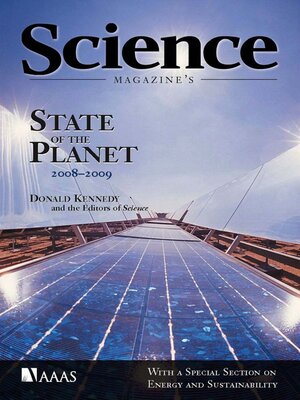Science Magazine's State of the Planet 2008-2009
ebook ∣ with a Special Section on Energy and Sustainability
By Donald Kennedy

Sign up to save your library
With an OverDrive account, you can save your favorite libraries for at-a-glance information about availability. Find out more about OverDrive accounts.
Find this title in Libby, the library reading app by OverDrive.



Search for a digital library with this title
Title found at these libraries:
| Library Name | Distance |
|---|---|
| Loading... |
Taken from the pages of Science and supplemented by contributions from the magazine's editors, State of the Planet 2008-2009 offers contemporary science writing that is sometimes provocative, frequently enlightening, and always authoritative. Published by the American Association for the Advancement of Science (AAAS), Science is one of the most respected scientific magazines in the world. With a readership of more than one million people, it offers "hard science" from top scientists to both educated lay readers and scientists alike. The articles collected here are arranged thematically and each section is introduced by a prominent scientist or science writer. Donald Kennedy, who was Editor-in-Chief of Science when these articles appeared in the magazine, contributes a preface and several short essays. Focusing on issues of energy and sustainability, sections of the volume are devoted to the prospects of energy-sparing technologies and alternatives to fossil fuel use, including ethanol and cellulosic digestion. Other sections center on climate change, led by a comprehensive essay on the state of scientific knowledge today and followed by contributions about the Antarctic and Greenland ice sheets, as well as the effects of climate change that have been measured to date, including changes in migration and breeding cycles of birds and flowering in plants, changing patterns of hurricanes and extreme weather events, and alterations in forest fire frequency. Interspersed throughout the book are Science news pieces that highlight particular issues and cases relevant to the main scientific findings. A glossary of key terms and concepts helps students and nonspecialists better understand the terminology and the issues.







